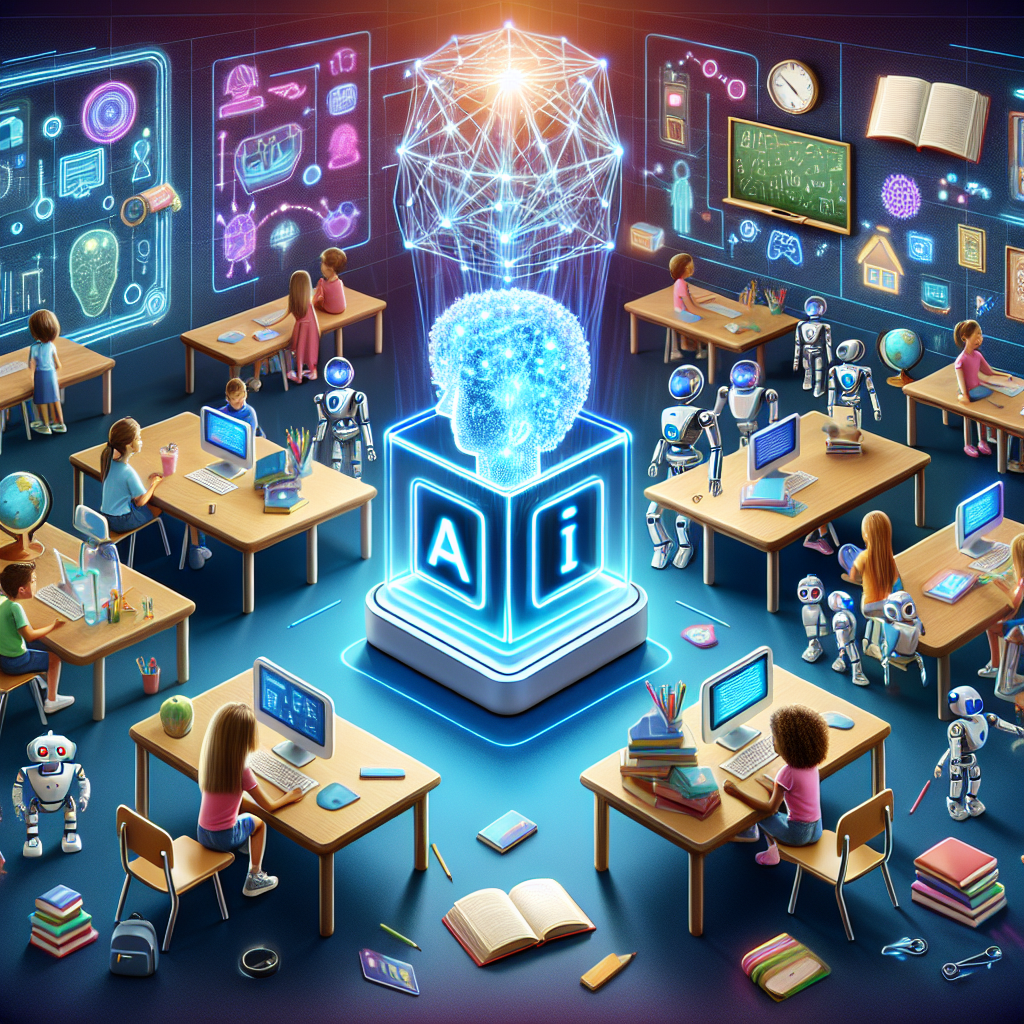In recent years, artificial intelligence (AI) has been making significant strides in various industries, including education. One of the most promising applications of AI in education is personalized learning. Personalized learning is an approach to education that tailors instruction to the individual needs and preferences of each student. By leveraging AI-driven solutions, educators can provide students with a more tailored and engaging learning experience that is better suited to their unique learning styles and abilities.
AI-driven solutions in personalized learning can take many forms, including adaptive learning platforms, intelligent tutoring systems, and virtual learning assistants. These technologies use machine learning algorithms to analyze data on student performance, preferences, and behavior to deliver personalized recommendations and feedback in real-time. By harnessing the power of AI, educators can create more effective and efficient learning experiences that help students achieve better outcomes.
One of the key benefits of AI-driven solutions in personalized learning is the ability to provide students with individualized support and guidance. These technologies can track students’ progress and identify areas where they may be struggling, allowing educators to intervene early and provide targeted interventions to help students overcome challenges. By tailoring instruction to the specific needs of each student, AI-driven solutions can help improve learning outcomes and increase student engagement and motivation.
Another advantage of AI-driven solutions in personalized learning is the ability to adapt to each student’s pace and learning style. Traditional classroom instruction often follows a one-size-fits-all approach, which can be challenging for students with different learning preferences and abilities. AI-driven solutions, on the other hand, can adjust the pace and content of instruction based on each student’s individual needs, ensuring that they receive the support and resources they need to succeed.
AI-driven solutions in personalized learning also have the potential to revolutionize assessment and feedback in education. These technologies can provide instant feedback to students on their performance, allowing them to track their progress and identify areas for improvement. By using AI to analyze student data, educators can gain valuable insights into how students learn and make more informed decisions about how to support their learning.
Despite the many benefits of AI-driven solutions in personalized learning, there are also some challenges and concerns that need to be addressed. One of the main concerns is the potential for bias in AI algorithms, which can lead to unfair or inaccurate recommendations for students. Educators and developers need to be vigilant in monitoring and addressing bias in AI-driven solutions to ensure that they are fair and equitable for all students.
Another challenge is the need for proper training and support for educators to effectively integrate AI-driven solutions into their teaching practices. Many educators may not have the necessary skills or knowledge to effectively use these technologies, which can hinder their adoption and impact on student learning. It is essential for schools and districts to invest in professional development and training programs to help educators build the skills and confidence needed to leverage AI-driven solutions in personalized learning.
In conclusion, AI-driven solutions have the potential to transform personalized learning and education by providing students with individualized support, adaptive instruction, and real-time feedback. By harnessing the power of AI, educators can create more effective and engaging learning experiences that help students achieve better outcomes. While there are challenges and concerns that need to be addressed, the benefits of AI-driven solutions in personalized learning are clear. As technology continues to advance, the role of AI in education is only expected to grow, providing new opportunities for students to learn and succeed.
FAQs:
Q: How can AI-driven solutions help students with special needs in personalized learning?
A: AI-driven solutions can help students with special needs by providing tailored support and accommodations, such as personalized instruction, adaptive learning materials, and real-time feedback. These technologies can help students with special needs overcome challenges and achieve better learning outcomes.
Q: Are AI-driven solutions in personalized learning only suitable for certain subjects or grade levels?
A: AI-driven solutions can be used in a wide range of subjects and grade levels, from elementary school to higher education. These technologies can be tailored to meet the specific needs and preferences of students in various subjects and grade levels, making them versatile and adaptable for different contexts.
Q: What are some examples of AI-driven solutions in personalized learning?
A: Some examples of AI-driven solutions in personalized learning include adaptive learning platforms, intelligent tutoring systems, virtual learning assistants, and personalized feedback tools. These technologies use machine learning algorithms to analyze student data and deliver personalized recommendations and support.
Q: How can educators ensure that AI-driven solutions in personalized learning are fair and unbiased?
A: Educators and developers can ensure that AI-driven solutions are fair and unbiased by monitoring and addressing bias in algorithms, using diverse datasets, and involving stakeholders in the design and evaluation of these technologies. It is essential to be vigilant in addressing bias to ensure that AI-driven solutions are equitable for all students.

